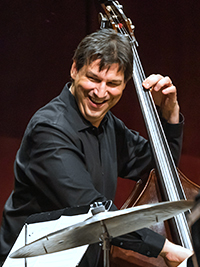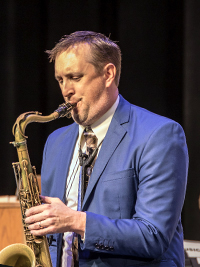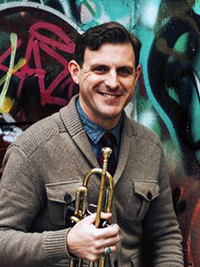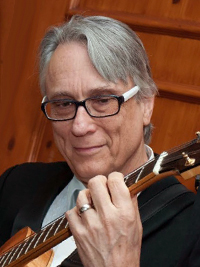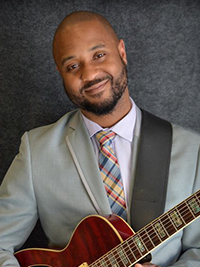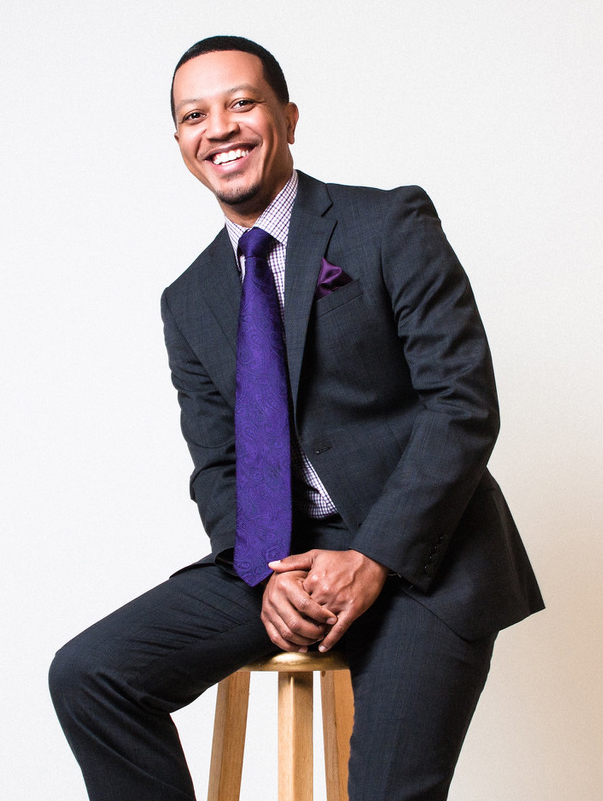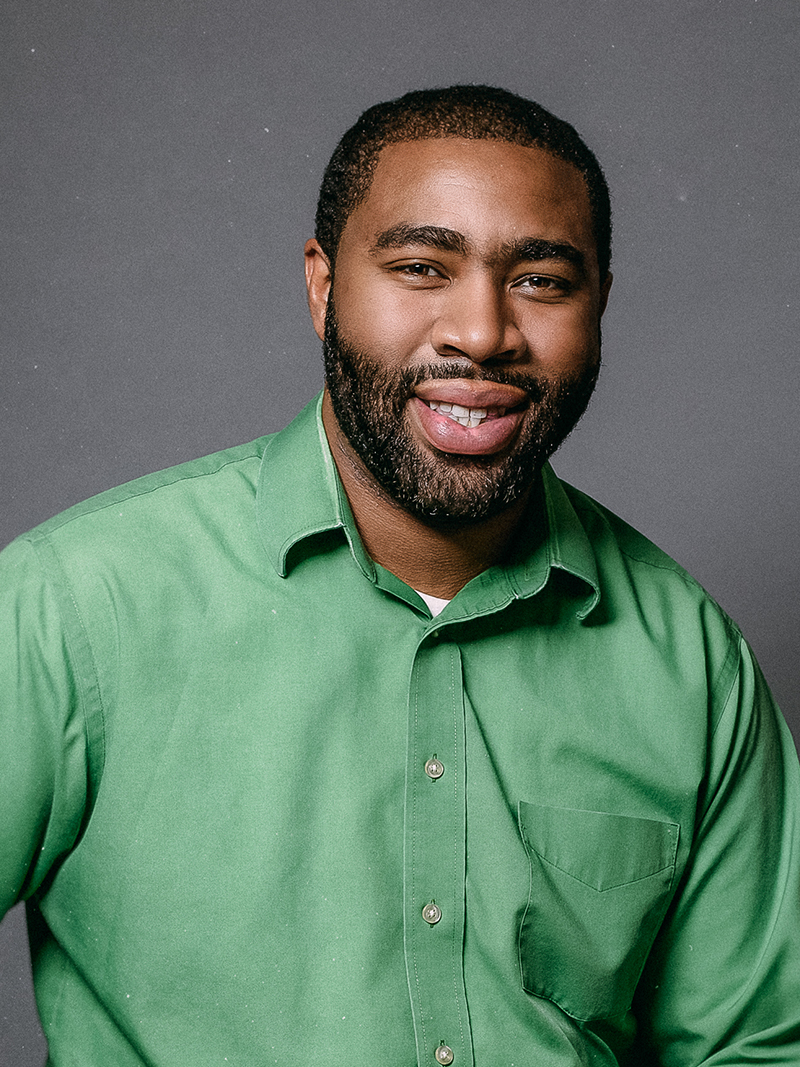Honors High School Jazz Band with Marcus Printup
Honors Jazz Band info and application form
Jazz Events for 2023-24 calendar year
INTRODUCING NEW MUSIC ED DEGREE with a JAZZ CONCENTRATION
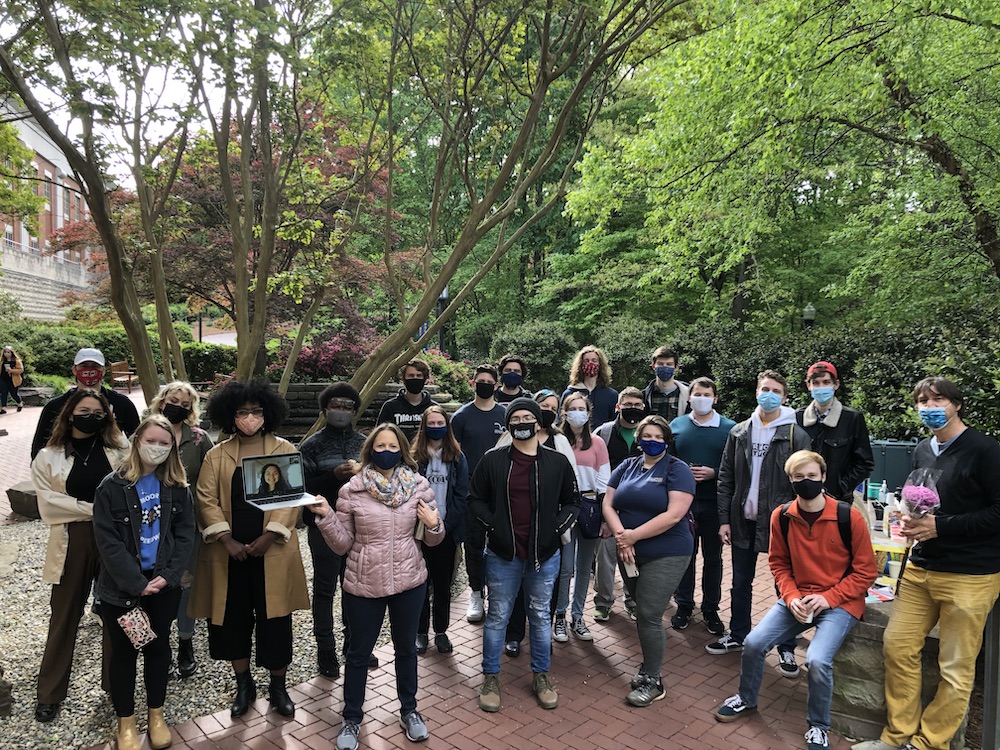
This fall we accept our first students in the B.M Music Education degree with a concentration in Instrumental General Jazz Music Education. It is the first of its kind in North Carolina. It’s designed for people who wish to teach in public schools, and have a passion for jazz music.
For the audition
Be prepared to do the following:
- Play major scales
- Play a blues and a jazz standard. Be able to play the melodies and improvise (guitar, bass, and pianists should demonstrate accompanying.) A rhythm section will be provided to play with you.
- Sightreading
- Performance of a transcription is optional. That is, play a solo that you have learned from an artist that you love, along with the recording
Jazz percussionists should demonstrate ballad, medium, and fast swing “time” with brushes and sticks; bossa nova, funk, and an afro-cuban groove. Jazz percussionists should bring their own sticks, mallets, brushes, snare drum, hi hat clutch, and cymbals (including hi hats) to the audition.
For more information, contact either Dr. Jennifer Walter (music ed courses, licensure) at [email protected], or Steve Haines (jazz courses, audition) at [email protected].
UNCG Jazz Ensemble 1 competes at Jazz at Lincoln Center
In spring 2021, UNCG Jazz Ensemble I was selected as one of the top 10 university big bands in the country to compete at Wynton Marsalis’ Jack Rudin Jazz Competition at Jazz at Lincoln Center in New York City.
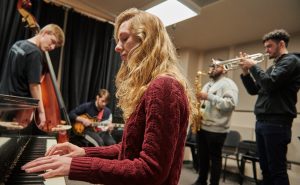
The Miles Davis Jazz Studies Program at UNCG is a unique and innovative undergraduate jazz program designed to emulate the traditional process of learning jazz, through a combination of mentorship, real-world playing experiences, and a communal approach to learning. Although the program is housed in one of the largest music schools in the Southeast, it is kept intentionally small, resulting in an intensive and highly personalized learning environment.
UNCG offers the following degree programs for students interested in studying Jazz:
MENTORSHIP
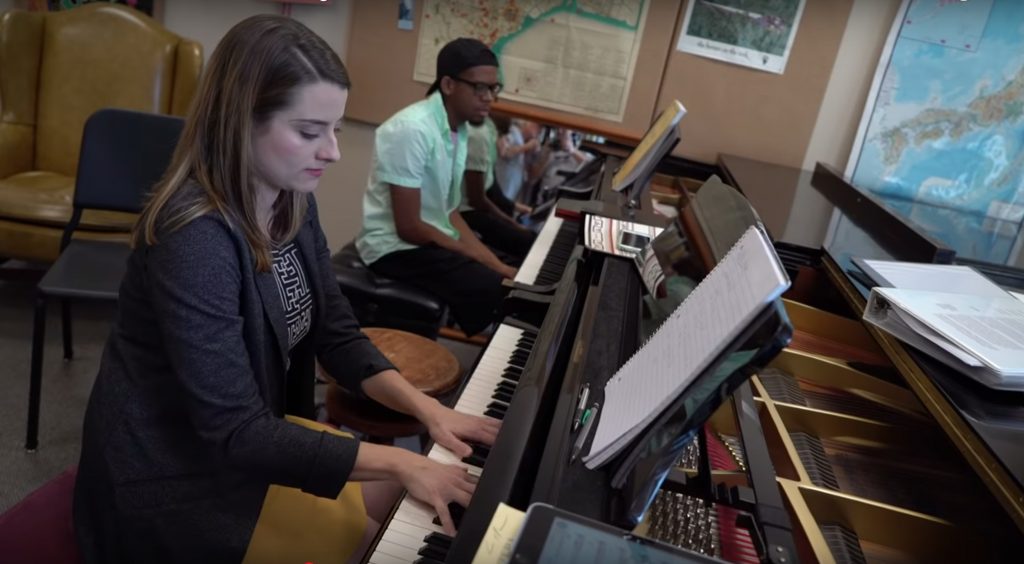
At UNCG, we believe in the value of mentorship. Whether you are studying with your private instructor, performing in one of our ensembles, or learning in a classroom setting you will work closely with our dedicated faculty on a daily basis.
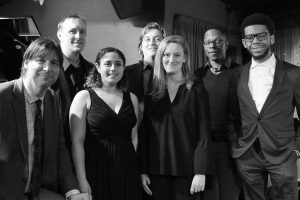 |
Our philosophy of mentorship is embodied in the Spartan Jazz Collective. The SJC is a collaborative ensemble in which faculty members mentor a rotating cast of students in bandleading, arranging, and rehearsal technique, while focusing on the music of specific jazz artists. Each semester students are given the opportunity to learn from one or more world-class visiting guest artists through performances and clinics. Past guest artists have included Jimmy Cobb, the John Scofield Trio, Lee Konitz, Branford Marsalis, Terri Lyne Carrington, Dewey Redman, Christian McBride, and Ellis Marsalis among others. |
Past Guest Artists
LEARN THROUGH EXPERIENCE
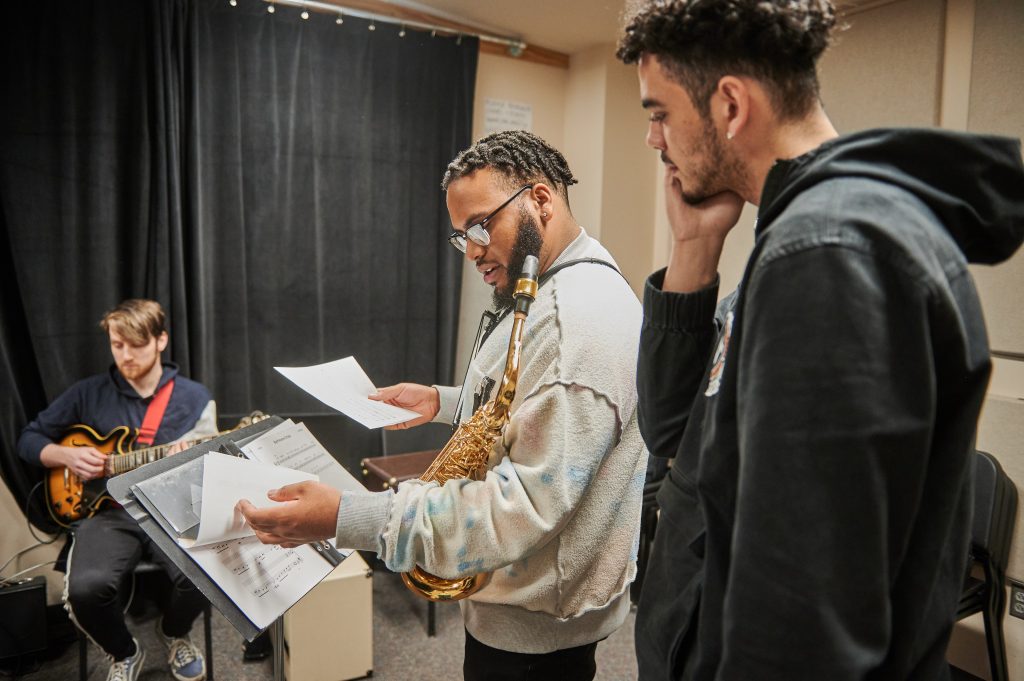
The Miles Davis Jazz Studies Program provides an immersive learning environment. All of our courses, from jazz theory to history to improvisation, place the focus on building the real-world skills you will need to be a successful musician. Your studies begin with Jazz Listening, a pioneering course designed to open your ears to a deeper understanding of music through the practice of active listening. In our year-long jazz arranging course you will learn how to arrange music for a variety of formats and then put those skills into practice writing arrangements for our various ensembles. Some of these student arrangements are documented each year in a professional recording with Jazz Ensemble I.

Playing opportunities abound for students in the program. In our jazz ensembles, you will perform on campus as well as at a variety of music venues, festivals and events across the region. In our jazz combos, you will explore the music of a specific jazz composer or performer every semester. You will also have opportunity to produce your very own concerts through partnerships with the Miles Davis Jazz Studies Program and several local music venues.
Jazz Ensemble I Recent Recordings:
LISTEN:
We Are Here by UNCG Jazz Ensemble I
The Civil Rights Movement In Jazz by UNCG Jazz Ensemble I and II
Past Recordings:
|
Community
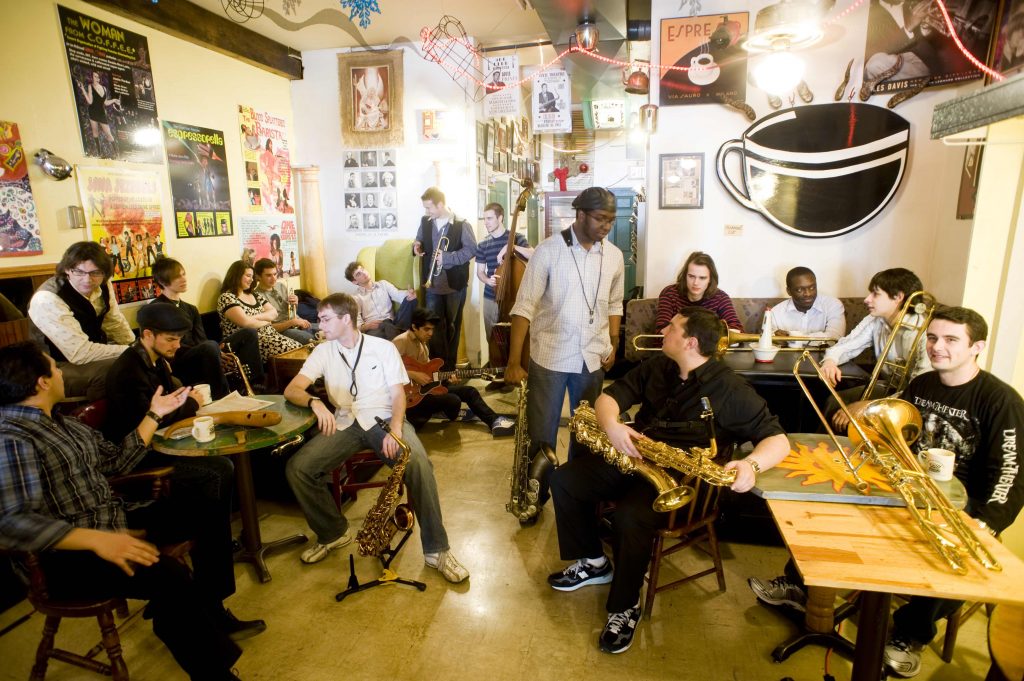
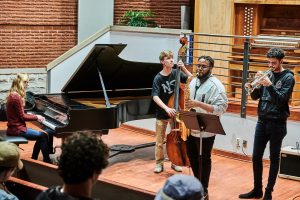 Jazz is a communal music. As a student in the Miles Davis Jazz Studies Program, you will be part of a larger community of dedicated students and faculty mentors. This community provides both a professional network as well as an opportunity to learn and grow together. Every week, all of our jazz majors meet for a weekly Repertory Class where they perform and are critiqued by faculty and peers.
Jazz is a communal music. As a student in the Miles Davis Jazz Studies Program, you will be part of a larger community of dedicated students and faculty mentors. This community provides both a professional network as well as an opportunity to learn and grow together. Every week, all of our jazz majors meet for a weekly Repertory Class where they perform and are critiqued by faculty and peers.
The program is also the hub of a larger community jazz scene in the North Carolina. UNCG is conveniently located within an hour of Raleigh, Winston Salem, Durham and Chapel Hill, providing plenty of opportunities for professional playing experience. Jam sessions can be found throughout Greensboro and the Triad region, most notably the weekly jam session at Tate Street Coffee House. For over a decade, this jam session has been a regular meeting place for students, faculty and local musicians.
Be a part of our community!
Faculty & Studios
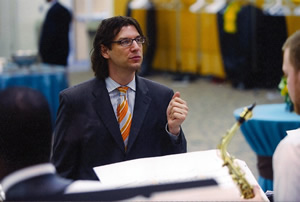 The Miles Davis Jazz Studies Program at the University of North Carolina at Greensboro offers the following courses to students interested in the study of jazz performance and history.
The Miles Davis Jazz Studies Program at the University of North Carolina at Greensboro offers the following courses to students interested in the study of jazz performance and history.
MUE 267 Jazz for Music Teachers
Introduction to jazz for future music teachers. Primary topics include historical study, listening, improvising, coaching ensembles, observation of jazz bands, and theoretical study.
Prerequisites: Music Education majors only.
MUS 401 Jazz Piano Skills
Introduction to jazz piano. Primary topics include chord voicing, bass lines, improvisation, and interpretation of chord symbols. Students will practice all skills at the keyboard during each class period.
MUS 214-01 Jazz Appreciation (3 credits: offered every semester)
Mondays and Wednesdays, 2:00-3:15 pm
Introductory course designed to give the student new insights and general knowledge of all jazz styles. Does not require previous musical training.
MUP 204/605-01 Principles of Jazz Theory (2 credits: offered every spring)
Tuesdays and Thursdays, 3:00-4:15 pm
Establishes a foundation of knowledge in jazz theory, stressing improvisation, jazz nomenclature, voice leading and basic chord substitution. In this class students learn by lecture, by rote, and with practical application of jazz improvisation.
MUP 104-01 Introduction to Jazz Listening (2 credits: offered every fall)
Tuesdays and Thursdays, 11 am to 11:50 am
This course introduces and enhances the power of listening to jazz music. With specific aural observation, the student will be able to hear more. This benefits our musicianship enormously.
MUP 321/664-01 Jazz Improvisation I (2 credits: offered every “even” year in the fall)
Mondays and Wednesdays, 10:00-10:50 am
MUP 322/665-01 Jazz Improvisation II (2 credits: offered every “odd” year in the spring)
Mondays and Wednesdays, 10:00-10:50 am
The first semester covers essential theoretical knowledge and practical skills and practice of integrating them into improvisation. The second semester involves continued development of knowledge and skills with emphasis on increased fluency and mastery.
MUP 409/609-01 Jazz Pedagogy (2 credits: offered every “even” year in the fall)
Mondays and Wednesdays, 2:00-2:50 pm
Study the principles of jazz interpretation, swing, improvisation, theory, and arranging. Procedures for organizing and administering jazz programs and for conducting small and large jazz rehearsals.
MUP 423/623-01 Jazz Arranging I (2 credits: offered every “odd” year in the fall)
Mondays and Wednesdays, 2:00-2:50 pm
This course introduces jazz arranging and composition for group sizes from duet to nonette. The music of Oscar Peterson, Art Blakey, Miles Davis, Wayne Shorter, Kenny Wheeler and others are studied.
MUS 424/624-01 Jazz Arranging II (2 credits: offered every “even” year in the spring)
Mondays and Wednesdays, 10:00-10:50 am
This course introduces jazz arranging and composition for large jazz ensembles. The music of Fletcher Henderson, Duke Ellington, Count Basie, Sammy Nestico, Thad Jones, Jim McNeely, and Kenny Wheeler are studied. In this class, students are able to have their arrangements performed by the UNCG Jazz Ensemble I & II. Many of these arrangements are recorded.
MUP 460/663 Jazz History (3 credits: offered every “even” year in the spring)
Mondays and Wednesdays, 2:00-3:15 pm
Chronological survey of jazz music and history. Introduction to standard reference works and investigation of socio-cultural aspects.
ENS 348/648-02 Chamber Music: Jazz (1 credit:offered every semester)
Students meet twice a week to rehearse, and collectively Wednesdays from 5:00-5:50 pm
Several “combos” are organized each semester to provide the student an opportunity to study and perform standard jazz literature and original student compositions. The small jazz ensembles perform on campus and in local restaurants and clubs. Small jazz groups receive active training in the studio
ENS 395/695-01 Jazz Ensemble I (1 credit: offered every semester)
Students meet Mondays through Thursdays from noon-12:50 pm
ENS 396/696-01 Jazz Ensemble II (1 credit: offered every semester)
Students meet Monday, Wednesday, and Friday from 11:00 -11:50 am
These large jazz ensembles rehearse and perform published music, and music of UNCG students.
A statement from the faculty of the Miles Davis Jazz Studies Program
On August 25, 1959, Miles Davis was standing outside of the marquee bearing his name at the Birdland Jazz Club when he was beaten and arrested by police unprovoked. NOTHING HAS CHANGED. More than 60 years later, millions of African Americans continue to live in the persistent shadow of racism. In just these past few months, Breonna Taylor, Ahmaud Arbery, George Floyd and others were senselessly murdered. Black Lives Matter.
To this end we recognize that the Miles Davis Jazz Studies Program has not done enough to fight structural racism. We do not have enough Black faculty in positions of power, nor do we have sufficient student scholarships. Accountability is the first step we can take for our students, colleagues, and community, both in Greensboro and at-large. We are passionate about jazz and education. We must learn to unite, acknowledge our own ignorance, and shift our core values.
Our promise is to do better. We are listening.
Chad Eby, Steve Haines, Thomas Heflin, Greg Hyslop, Ariel Pocock, Thomas Taylor
Join Us!
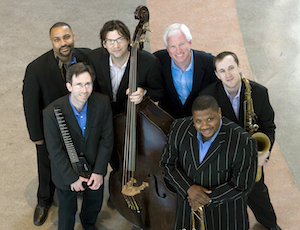 We humbly ask you to join us as we embark on our first jazz-specific fundraising campaign. The UNCG Miles Davis Jazz Studies Program continues to offer world-class education and mentorship, with ample performance opportunities. Our path is certainly not the path of least resistance: we study by rote, with an emphasis on the blues, swing, improvisation, published composition and arranging, and recording experience. Recent artists who have taught at UNCG include Peter Bernstein, Jason and Ellis Marsalis, John Ellis, Lee Konitz, and Joel Frahm, among others.
We humbly ask you to join us as we embark on our first jazz-specific fundraising campaign. The UNCG Miles Davis Jazz Studies Program continues to offer world-class education and mentorship, with ample performance opportunities. Our path is certainly not the path of least resistance: we study by rote, with an emphasis on the blues, swing, improvisation, published composition and arranging, and recording experience. Recent artists who have taught at UNCG include Peter Bernstein, Jason and Ellis Marsalis, John Ellis, Lee Konitz, and Joel Frahm, among others.
We are extremely proud of our graduates, as they are very successful, but we can’t continue to do this alone. Join us with an annual pledge: no amount is too small! You will receive a letter of receipt, as all donations are tax deductible.
For more information, contact Steve Haines, Director of the Miles Davis Jazz Studies Program at [email protected] or (336) 256-0105.
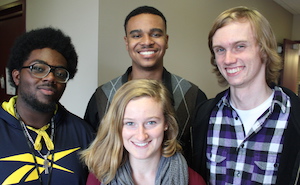 Annual Donors
Annual Donors
“KIND OF BLUE” ($5000+)
Betty and Dennis Barry
The Robinson Family
“MILES AHEAD” ($2500–$4999)
Karen Armstrong
Bill, Susie, and Fred Black
Tom Chitty Associates
Kindermusik International, Inc.
Dr. Skip Moore, II in honor of Peg Moore
Doris Funderburk Morgan
James Riedy
“BIRTH OF THE COOL” ($1000–$2499)
Dennis and Betty Barry
Aebersold Charitable Lead Trust/Jamey Aebersold
Bobby Biggerstaff
Peggy Hitchcock
IBM Coorporation
Ann Fitzmaurice
Shelley Stolaroff Segal
Randi and Scott Smith
“IN A SILENT WAY” ($100–$999)
Howard and Margaret Arbuckle III
Stacey and James Carson
Thomas E. Cone
Glenn and Tonya Dobrogosz
Steve Haines
Anna Justice
Dr. John R. Locke
Nancy Madden
Melon Carnegie Foundation
Sam and Jane Miller
Andrea Neece
Matt Russ and Tate St. Coffee
Mike Sailors
Nancy and Steve Shane
Katrina Smith
Brandon Tesh
Thomas Ward
The Weaver Foundation
“MILES SMILES” ($1–$99)
Kevin & Diane Allen
Théo Besnard
Kenny and Susan Butler
Logan Butler
Antonio Castro-Ossorio
Jackson Coyne
Irvin Rosado De Jesus
Robert Dove
Dr. Dana Dunn
Chad Eby (jazz faculty)
Chenny Gan
Sarah Gooch
Alex Hames
Dr. Thomas Heflin (jazz faculty)
Phillip Hoffman
Hokan Holm
William Ledbetter
James McLaughlin
Keil McMurray
Sal Mascali
David & Patricia Pearson
Ariel Pocock (jazz faculty)
Leroy Pridgen, IV (current student)
Andrew Sanchez
Marilee and Keith Settler
Liam Trawick
Michael Van Patter
Shane Wheeler
If you would like to donate, please make checks payable to “UNCG Jazz” and mail to:
Steve Haines, Director
Miles Davis Jazz Studies Program
UNCG College of Visual and Performing Arts
PO Box 26170
Greensboro, NC 27402-6170
Patricia Sutker

